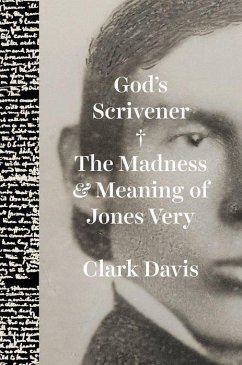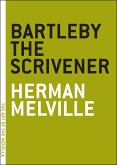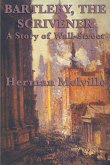"In September 1838, a twenty-five-year-old tutor at Harvard named Jones Very stood before his beginning Greek class and proclaimed himself the Second Coming. Relieved of his teaching duties, Very spent the next two years writing more than four hundred sonnets, all of which he claimed were delivered to him, as though through dictation, by the Holy Spirit. He was examined by the dean of romantic Unitarianism, William Ellery Channing, and strove to "convert" Nathaniel Hawthorne and several luminaries of the Transcendentalist movement, including Ralph Waldo Emerson. Many were moved by Very's obsessed presence and by the quiet, controlled poetry that spilled forth during his season of spiritual ecstasy. God's Scrivener: The Madness and Meaning of Jones Very is a comprehensive literary biography of this mystic poet of Transcendentalism, the first fully researched reconsideration of an unusual but important figure in American literature in over fifty years. Born into the same recalcitrant Salem that produced Hawthorne, Very overcame repeated tragedies and a questionable family reputation to become a star student at Harvard. But after he graduated, he pursued a revolutionary regimen to give up all trace of personal will and transform himself, anticipating the most famous passage in Emerson's Nature, into "part or particle of God." Clark Davis's masterful biography shows how Very came to embody both the full radicalism of Emerson's vision, exposing the trap of isolation, and the emptiness that lay in wait for those who sought complete transcendence"--
Hinweis: Dieser Artikel kann nur an eine deutsche Lieferadresse ausgeliefert werden.
Hinweis: Dieser Artikel kann nur an eine deutsche Lieferadresse ausgeliefert werden.








